
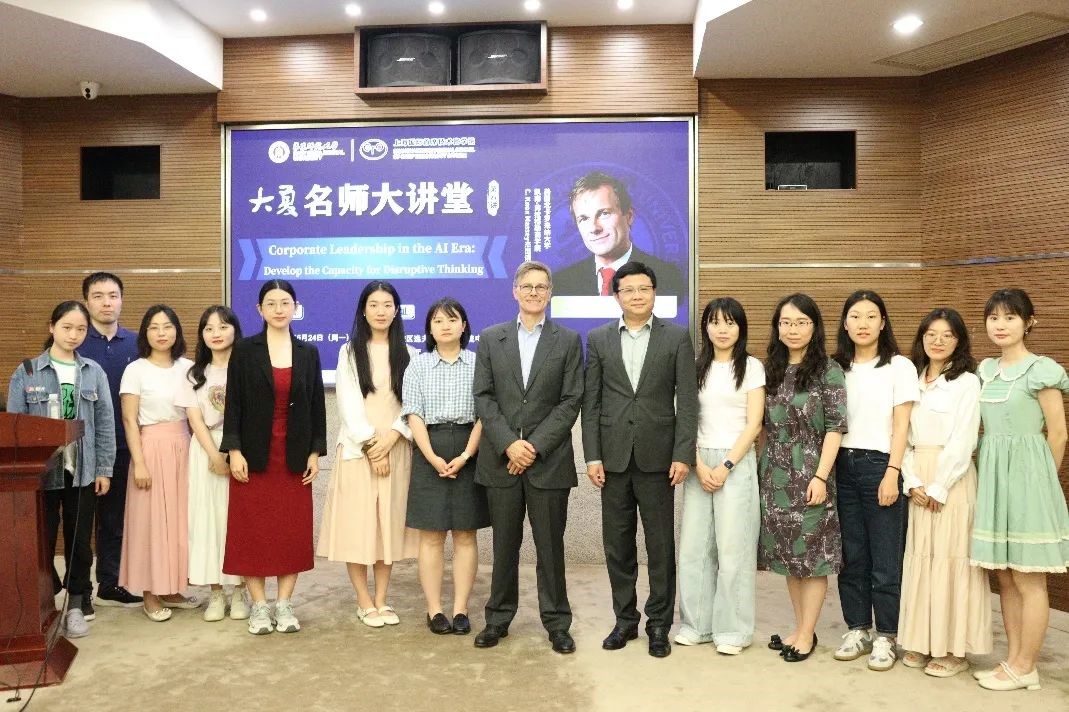
On June 24th, the "Innovation Leadership and Global Brand Strategy Seminar", hosted by the Shanghai International Chief Technical Officer College of East China Normal University and jointly organized by the Asia Europe Business School and the National Brand Strategy Research Center, was held in the lecture hall on the third floor of Yifu Building at East China Normal University Putuo Campus. This seminar invites C from the Kennan Flagler School of Business at the University of North Carolina in the United States Before the forum, the college also held the 27th lecture of the "Great Summer Famous Teachers Lecture Hall" and the 31st "Famous Scholar Academic Lecture" of East China Normal University in 2024, with Professor Steenkamp as the keynote speaker. This event is hosted by He Jiaxun, a professor at East China Normal University, Executive Dean of Shanghai International Chief Technology Officer College, and Chinese Dean of Asia Europe Business School.
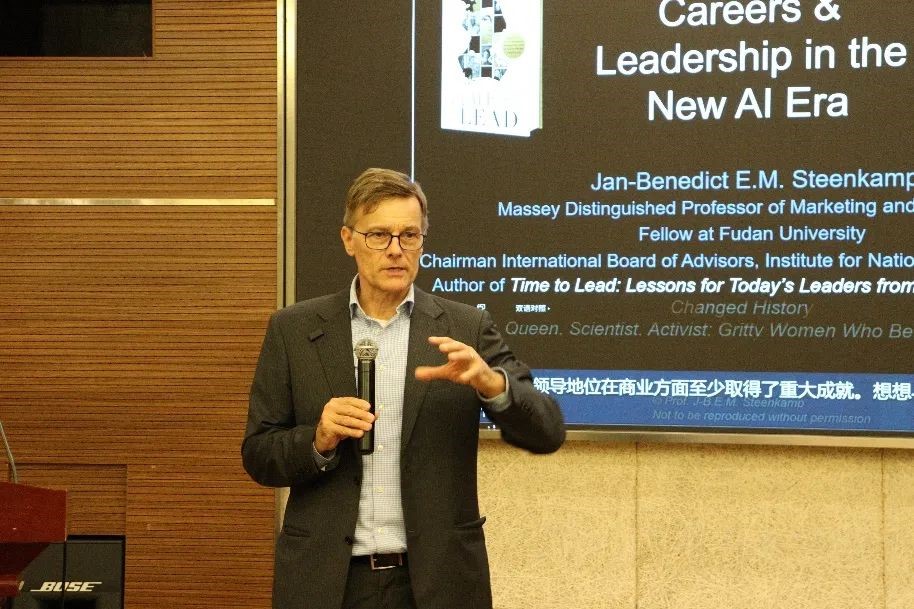
Professor Steenkamp gave a lecture on "Career Development and Leadership in the New AI Era". Firstly, he elaborated on the development trends and related concepts of artificial intelligence. He pointed out that Prompt Engineering is a key role in using generative AI processes. Regarding how to better use AI through prompt engineering, he suggests that the ideal positioning of generative AI tools is our assistants rather than the main decision-makers, and we should apply our own knowledge in specific fields during the use process. To better evaluate the results, we need to know exactly what we are doing and tell AI tools what role we want to play. In addition, ensure the relevance and clarity of prompts, as vague prompts may lead to irrelevant answers. Of course, it is also necessary to pay attention to the order of different prompt words.
He mentioned the profound impact of artificial intelligence on the fields of education and business. Generative AI can serve as a portable information repository to help people quickly obtain the information they need, thereby improving work efficiency. For example, in the field of marketing, AI can provide the latest research and best practices on pricing strategies and promotional activities, helping marketers make wiser decisions. He demonstrated the significant value of generative AI in innovative research and development through examples such as how to design backpacks for people over 50 years old and how to segment the egg market. However, even if generative AI can provide us with creativity and options, the final decision-making and evaluation still need to be done by humans.
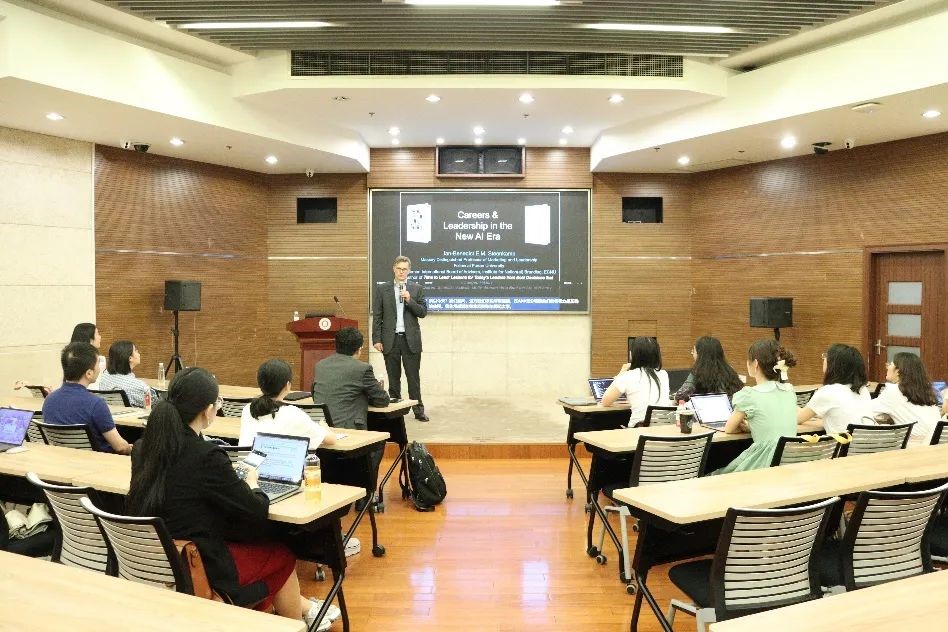
Generative AI also plays a certain role in cultivating leadership. Professor Steenkamp demonstrated the different responses given by generative AI to prompt words related to leadership style and employee response. He shared two books that gathered his research findings on leadership, Time to Lead: Lessons for Today's Leaders from Bold Decisions that Changed History, and Warrior, Queen, Scientist, Activist: Gritty Women Who Bent the Arc of History, These two books provide more detailed explanations on this topic.
Professor Steenkamp also explored the impact of artificial intelligence on the job market and personal development. He believes that the development of artificial intelligence will have a serious impact on some professions, including educators, creative content workers, customer service, financial analysts, computer programmers, and so on. However, at the same time, artificial intelligence has also brought many opportunities for personal career development. For example, AI tools can improve our work efficiency and place higher demands on new skills such as being able to ask meaningful questions and evaluate the value of AI answers with critical thinking. At the same time, the rapid development of artificial intelligence also prompts us to think deeply and understand the subject value of humanity. New research areas have also emerged, such as artificial intelligence sustainability, ethical issues in artificial intelligence, and human-machine collaboration.
Finally, he emphasized that artificial intelligence is reshaping education models, business practices, and leadership development. In the new era of AI, leaders must possess disruptive thinking, use AI as an extension tool for knowledge, and maintain human unique critical thinking and innovation abilities. We cannot compete with generative AI. Learning to make AI work for you and developing skills that are suitable for the new AI era is the way to win in the new AI era.
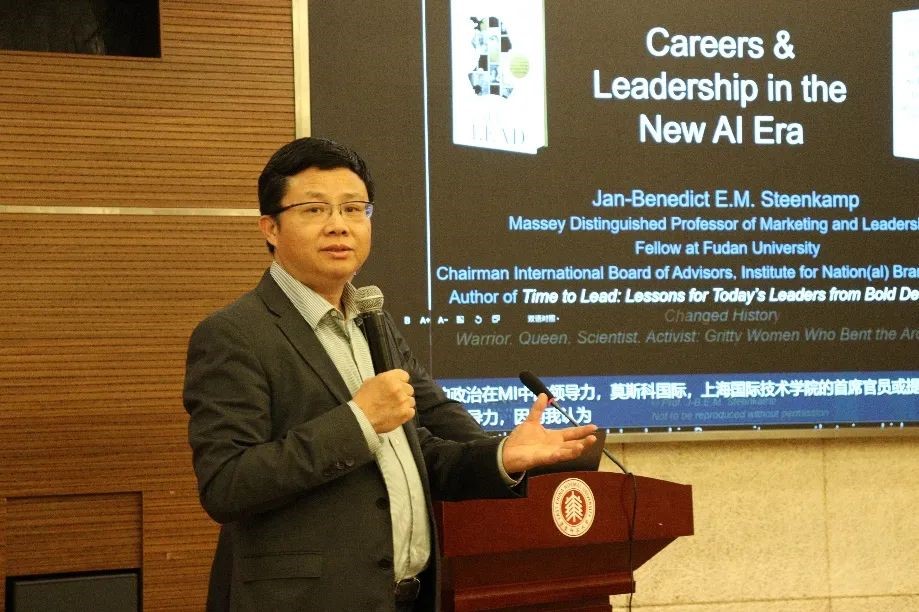
In response to the cultivation of innovative leadership in the new AI era, He Jiaxun, Executive Dean of Shanghai International Chief Technology Officer College and Chinese Dean of Asia Europe Business School, shared a series of educational and innovative work of the college in the new AI era. This year, the college established the Department of Artificial Intelligence and Innovation Science, which is positioned for scientific research, talent cultivation, and science and technology innovation industry services in AI for Innovation. As early as the beginning of 2020, the college officially began exploring the intersection of artificial intelligence and business management in talent cultivation. Over the past four years, a complete curriculum education and training system has been established; On April 15, 2023, the college officially established the Artificial Intelligence and Innovation Science Research Center, and established the research positioning of AI for Innovation; In July 2023, the college officially launched the Intelligent Innovation Engineering Project for the Master of Engineering Management, and the first batch of students will soon enroll in September of this year. At present, the Department of Artificial Intelligence and Innovation Science has 4 professors, 4 practical professors, 3 associate professors, and 4 assistant professors.
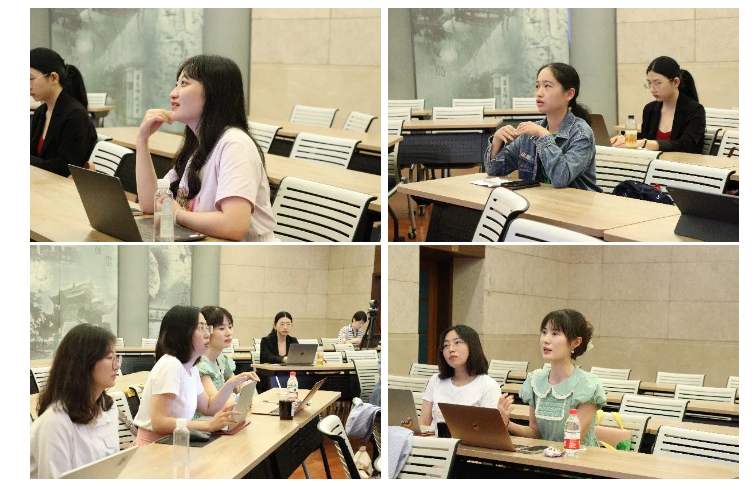
During the seminar, Professor Steenkamp and his research team conducted in-depth discussions on various research topics related to innovation leadership in the AI era and global brand leadership. Several teachers and doctoral students from the college gave presentations. Professor Steenkamp provides detailed suggestions and opinions one by one. Under the influence of AI technology, there are many new issues on how AI can help enterprises maintain brand competitiveness in the global market, and how to establish brand trust and loyalty in a data-driven market environment. In addition, the seminar also focused on the ethical and legal issues brought about by AI technology, especially in terms of data privacy and intellectual property.
With the successful conclusion of the seminar, the teaching and research team reached a consensus that in the new AI era, innovation leadership and global brand strategy should not only pursue technological progress, but also focus on human values and social responsibility. This seminar not only provides valuable knowledge and insights, but also points out new directions for future leadership development and global brand strategy development.




